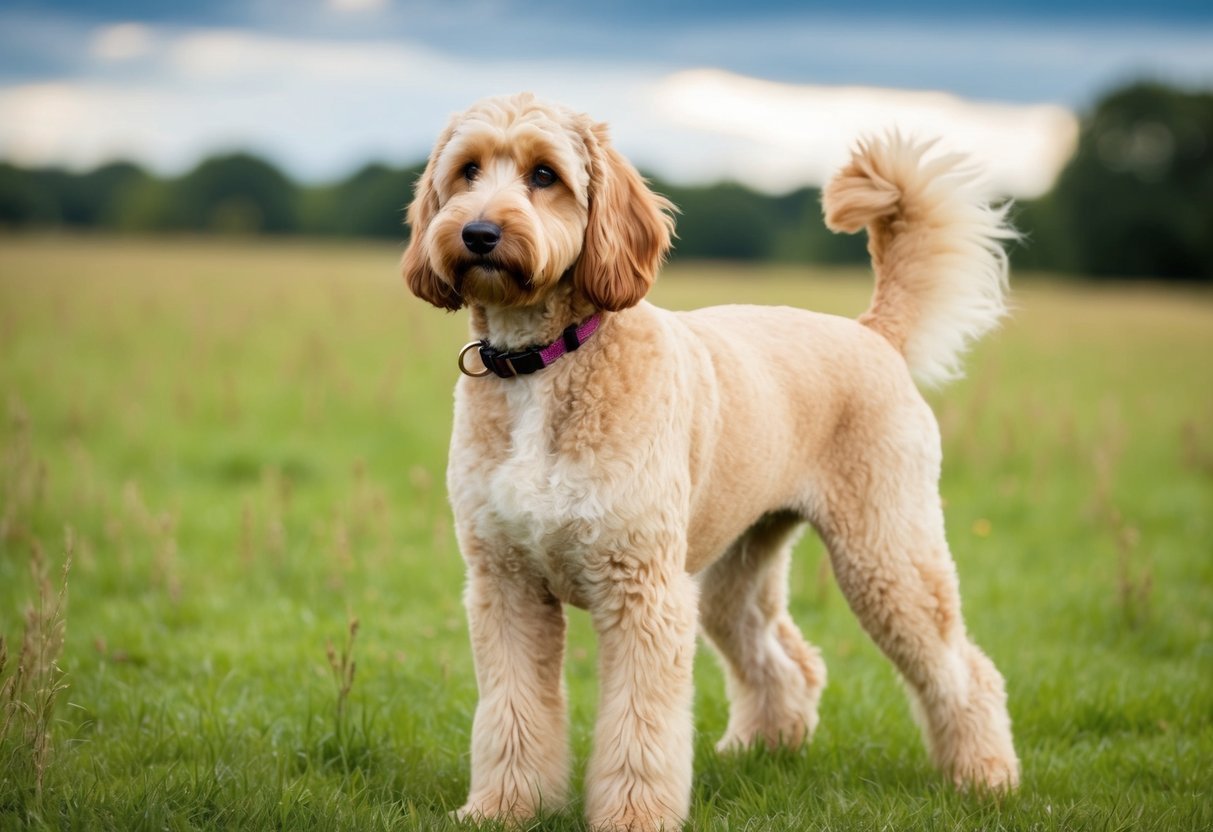Shepadoodles are a mix between a Sheepdog and a Poodle, and they are known for their friendly nature and charming looks.
If you’re considering adding one of these adorable dogs to your family, there are some important aspects you should know. This breed requires regular grooming and training to thrive in a home environment.
Many people are drawn to Shepadoodles for their sweet personalities, but there are a few details that might surprise you.
Understanding these hidden facts can help you make a more informed decision about welcoming a Shepadoodle into your life.
Whether you’re a first-time dog owner or a seasoned pet parent, knowing what to expect can make all the difference.
1) Massive Cuddle Bugs
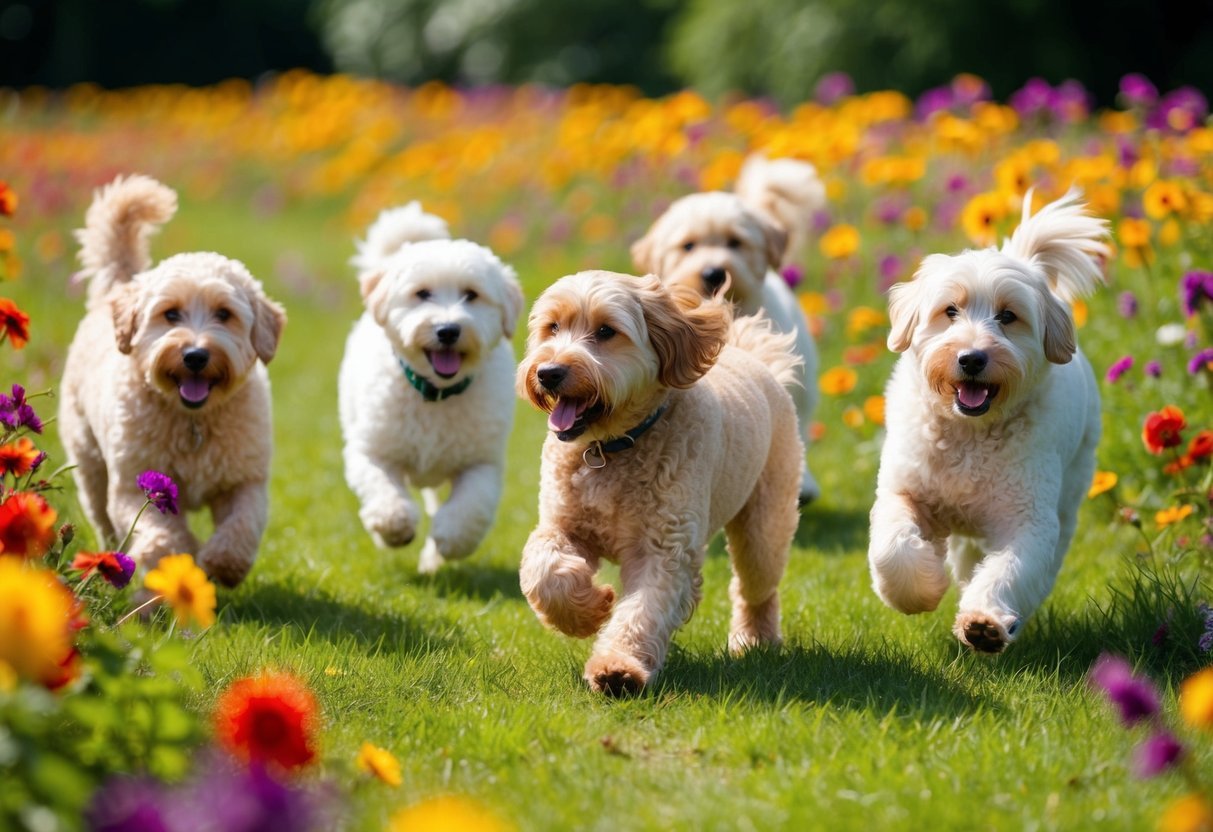
Shepadoodles are known for their love of cuddling.
When you get home, they’ll be right there, ready to snuggle up.
They thrive on human interaction and enjoy being close to you.
These dogs are affectionate and gentle, making them great companions.
Their fluffy coats and warm bodies make them perfect for a cozy cuddle on the couch.
You might find that they follow you from room to room, wanting to be your shadow.
They have a knack for making you feel loved and appreciated.
If you’re looking for a pet that loves to be close, Shepadoodles are a great choice.
They’ll happily curl up beside you as you watch a movie or read a book.
Being a cuddle bug is just one of the many traits that make Shepadoodles so special.
You’ll always have a furry friend ready to cheer you up after a long day.
With their playful nature and loyalty, you’ll cherish those cuddle moments even more.
2) Surprisingly Hypoallergenic
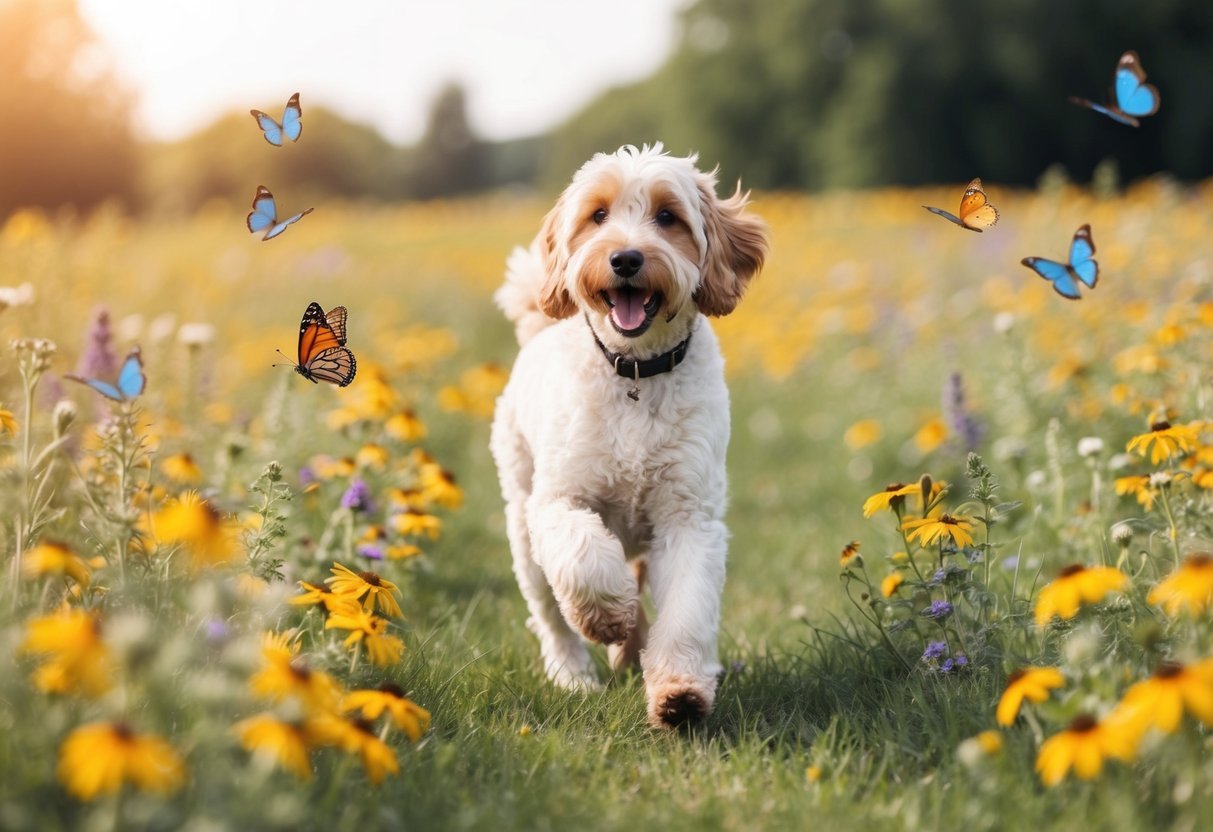
You might be surprised to learn that Shepadoodles can be hypoallergenic.
This mixed breed combines traits from an Old English Sheepdog and a Poodle.
Thanks to their Poodle parent, they often shed less hair and dander.
While no dog is completely hypoallergenic, Shepadoodles tend to produce fewer allergens.
This means you might have less trouble with allergies compared to more typical breeds.
If you’re allergic, this can be a big plus.
Choosing a Shepadoodle with a wavy coat can help minimize shedding even more.
These dogs usually have a low-shedding coat that traps dander, making it less likely to spread around your home.
If your allergies aren’t too severe, a Shepadoodle could be a great fit for you.
Just keep in mind that the level of hypoallergenicity can vary between individual dogs.
Genetics plays a key role, so it’s always good to ask the breeder about the parents.
3) Shepadoodle Smarts
Shepadoodles are known for their intelligence.
This mix of German Shepherd and Poodle results in a dog that learns quickly.
You’ll find that they pick up commands and tricks faster than many breeds.
Their smarts make them eager to engage in activities.
Whether it’s obedience training or fun games, these dogs love to work with you.
Keeping their minds active is important.
Socialization helps your Shepadoodle flourish.
Introducing them to new people and situations can boost their confidence.
A well-socialized Shepadoodle may be more adaptable and friendly.
Training should be a fun experience for both of you.
Use positive reinforcement techniques to motivate them.
Reward-based training methods can lead to great results.
Due to their intelligence, they can become bored easily.
If they don’t have enough to do, they might find their own entertainment.
Make sure to provide mental stimulation through toys or puzzles.
In short, Shepadoodles are smart, fun, and loyal companions.
Embrace their intelligence, and you’ll have a happy, well-adjusted dog by your side.
4) Born to Be Active
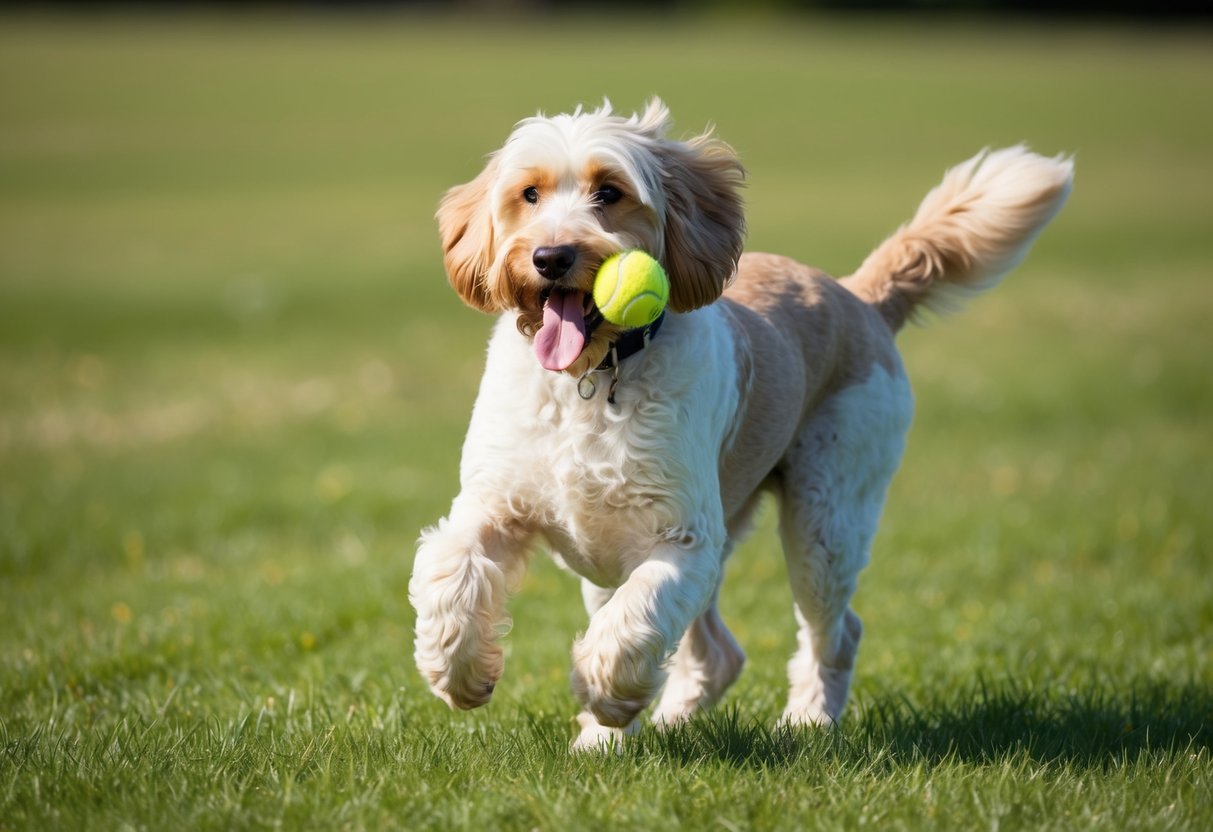
Shepadoodles are energetic dogs that thrive on activity.
These pups need plenty of exercise to keep them happy and healthy.
You’ll find that regular walks are a must.
They enjoy exploring new places and taking in different sights and smells.
This keeps their minds and bodies engaged.
Running, hiking, or even swimming are great ways to burn off energy.
You should plan for at least a few hours of activity each day.
Mental stimulation is just as important.
Interactive games and training sessions can help keep your Shepadoodle’s mind sharp.
They are smart and enjoy problem-solving activities.
Having a yard is nice, but it’s not enough.
Shepadoodles need your active involvement to stay fit and happy.
Make sure to set aside time for play and exercise.
With your commitment, your Shepadoodle will flourish and be a joyful companion.
The more you engage them, the more rewarding your relationship will be.
5) Loves Water Adventures

Your Sheepadoodle is likely to have a real love for water.
This breed often enjoys swimming and playing in water, thanks to its Poodle heritage.
You might find your dog diving into the pool or splashing in a kiddie pool.
Swimming is not just fun for them; it can also be great exercise.
Regular water activities can help keep your Sheepadoodle healthy and fit.
Just be sure to supervise while they’re having their water adventures.
If you introduce your dog to water at a young age, they’ll usually take to it quickly.
Take time to show them the ropes and let them get comfortable.
While many Sheepadoodles love water, each dog is different.
Some may be hesitant to jump in.
Be patient and encourage them gently.
Remember to always prioritize safety.
Ensure they swim in safe areas and use life jackets if needed.
With the right approach, your Sheepadoodle can become a water-loving companion, ready for aquatic fun.
6) Low Shedding

If you’re thinking about getting a Shepadoodle, you’ll be happy to know they are generally low-shedding dogs.
This means less dog hair around your home.
The amount they shed can depend on their genetics.
Since they’re a mix of Poodles and Old English Sheepdogs, Shepadoodles typically inherit the low-shedding traits from the Poodle side.
While no dog is entirely non-shedding, Shepadoodles usually lose less fur than many other breeds.
If you’re looking for a pet that might be better for allergies, they can be a good choice.
Regular grooming helps keep their coats healthy.
Brushing a couple of times a week can reduce shedding even more.
It’s a simple way to keep both your dog and home looking great.
In colder months, some dogs might experience dryness in their skin, which can lead to a bit more shedding.
Adding a drop of cod liver oil to their diet might help with this issue.
With some care, your Shepadoodle can stay low-shedding and happy.
Understanding Shepadoodles
Shepadoodles are an interesting mix of German Shepherds and Poodles.
They combine traits from both breeds, creating a dog that is smart, playful, and loyal.
Let’s dive into what makes them unique and where they come from.
What Is a Shepadoodle?
A Shepadoodle is a crossbreed that brings together the intelligence of the Poodle and the strength of the German Shepherd.
They typically weigh between 50 to 80 pounds and have a life span of about 12 to 14 years.
These dogs come in various colors, including black, cream, and fawn.
Their coats can range from curly to wavy, depending on which parent they take after.
Regular grooming is essential to keep their fur healthy and tangle-free.
Shepadoodles are known for their friendly and gentle nature.
They make great family pets and usually get along well with children and other animals.
Plus, they are eager to please, which makes training easier for new owners.
History of the Breed
The Shepadoodle is a relatively new designer breed that emerged in the late 20th century.
Breeders aimed to combine the best traits of both the German Shepherd and the Poodle.
German Shepherds were recognized in the early 1900s for their intelligence and versatility.
Poodles, originally bred as water retrievers in Germany and France, are also known for their intelligence and hypoallergenic coats.
The goal of creating Shepadoodles was to produce a dog that retains the intelligence and low-shedding fur of the Poodle while enjoying the loyalty and protective instincts of the German Shepherd.
This mix has quickly gained popularity among dog lovers seeking a versatile and devoted pet.
Traits and Characteristics
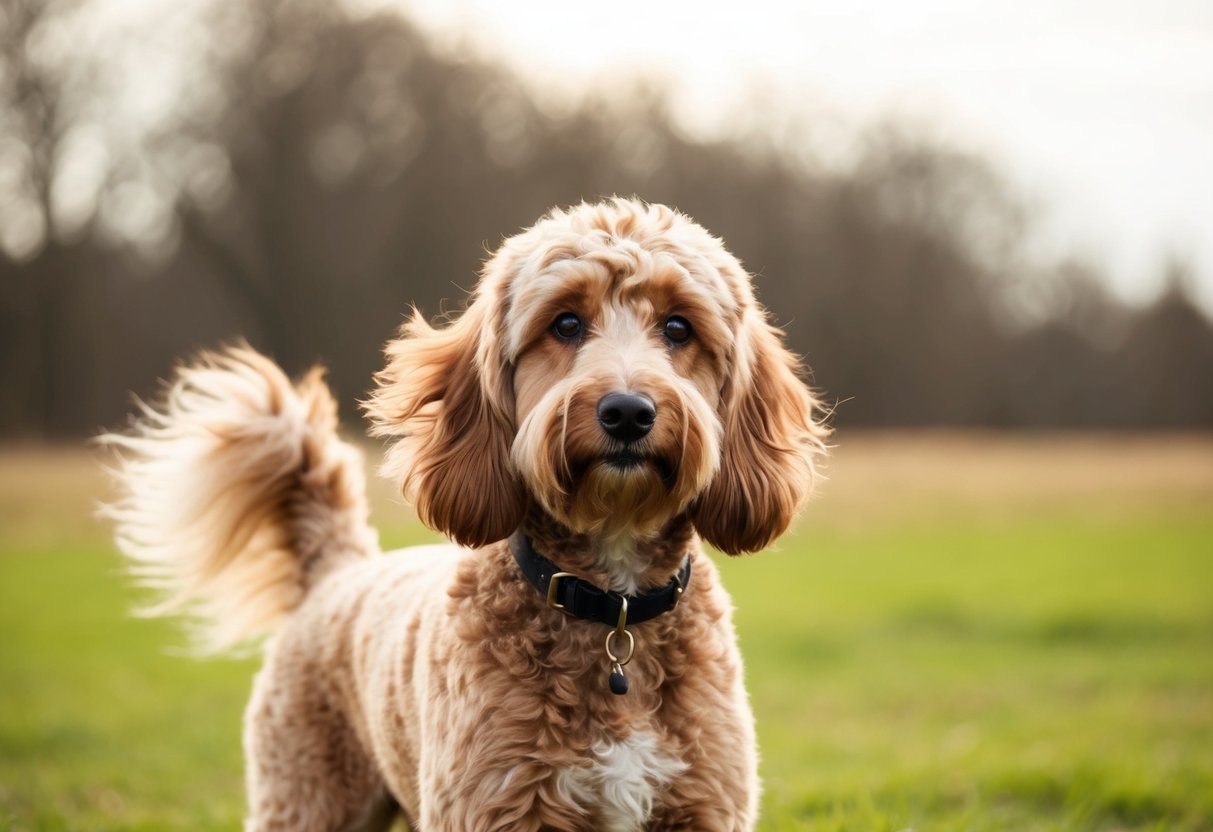
Shepadoodles blend the best traits of their parent breeds, German Shepherds and Poodles.
This mix leads to unique physical features and an engaging personality that can be both entertaining and affectionate.
Physical Appearance
Shepadoodles come in a variety of sizes, depending on whether they inherit more traits from the Poodle or German Shepherd.
Generally, they have a sturdy build with a wavy or curly coat that can be short or long.
Their fur can vary in color, including black, cream, and gray.
Key Features:
- Size: Medium to large, typically weighing between 50-90 pounds.
- Coat: Hypoallergenic fur, thanks to their Poodle lineage.
- Face: Expressive eyes and ears that may be floppy or stand up.
These dogs require regular grooming to keep their coat healthy and to minimize shedding.
Temperament and Behavior
Shepadoodles are known for their intelligence and social nature.
They often display a loving, playful attitude and are great with kids and other pets.
Training is usually easy because they are eager to please.
Common Traits:
- Friendly and Social: They enjoy being around people and can be quite affectionate.
- Active and Adventurous: Regular exercise is critical. Daily walks and playtime keep them happy.
- Protective Instinct: They may inherit a watchful nature from the German Shepherd side.
With the right training and socialization, these dogs make loyal companions.
Frequently Asked Questions
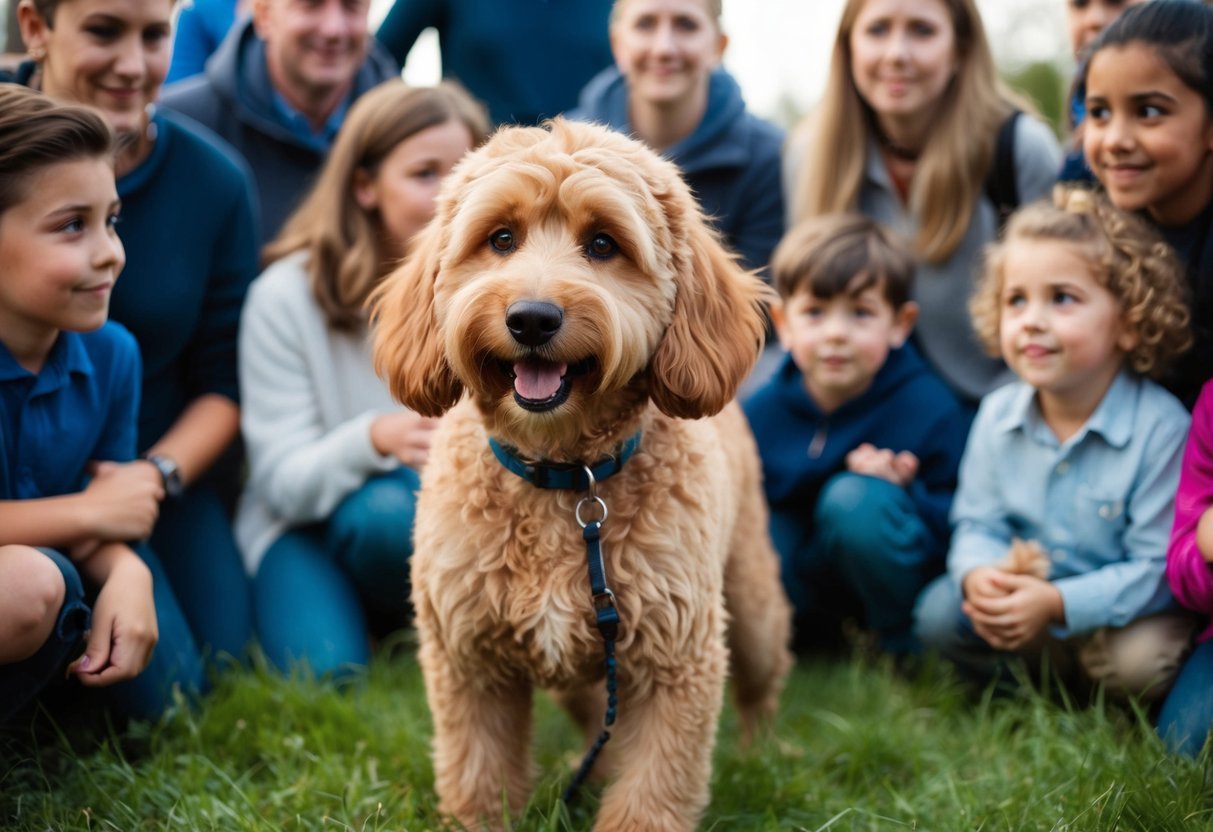
Shepadoodles have unique traits that make them stand out.
Here’s what you need to know about their size, personality, family dynamics, grooming needs, health issues, and adoption process.
How big do Sheepadoodles get when they’re fully grown?
Sheepadoodles can vary in size depending on their Poodle parent.
Generally, standard Sheepadoodles can weigh between 45 to 80 pounds and stand about 18 to 28 inches tall.
Miniature variations are smaller, usually weighing 25 to 45 pounds and reaching heights of 12 to 18 inches.
What’s the personality like for a Sheepadoodle?
Expect a friendly and loving personality from a Sheepadoodle.
They are known for their intelligence and eagerness to please.
This breed enjoys spending time with their owners and often has a playful, energetic side.
Are Sheepadoodles good with families and do they make good watchdogs?
Shepadoodles are great family pets.
They are gentle and enjoy being around kids, making them wonderful companions.
While they can alert you to strangers, they aren’t known to be aggressive watchdogs.
Their friendly nature often leads them to welcome visitors.
What’s the deal with grooming a Sheepadoodle, any high-maintenance surprises?
Grooming a Sheepadoodle can require some effort.
Their curly coats can mat easily, so you need to brush them regularly.
You might want to schedule professional grooming every few months to keep their coats in top shape and prevent any surprises.
What are the potential health issues to look out for in a Sheepadoodle?
Shepadoodles can be prone to certain health issues.
Common concerns include hip dysplasia, allergies, and eye problems.
Regular vet check-ups can help catch these issues early.
Can you adopt a Sheepadoodle, and what’s the process like?
Yes, you can adopt a Sheepadoodle! Many shelters and rescue organizations have these dogs available.
The process usually involves filling out an application.
Then, a home visit and possibly a meet and greet with the dog to ensure it’s a good fit.

